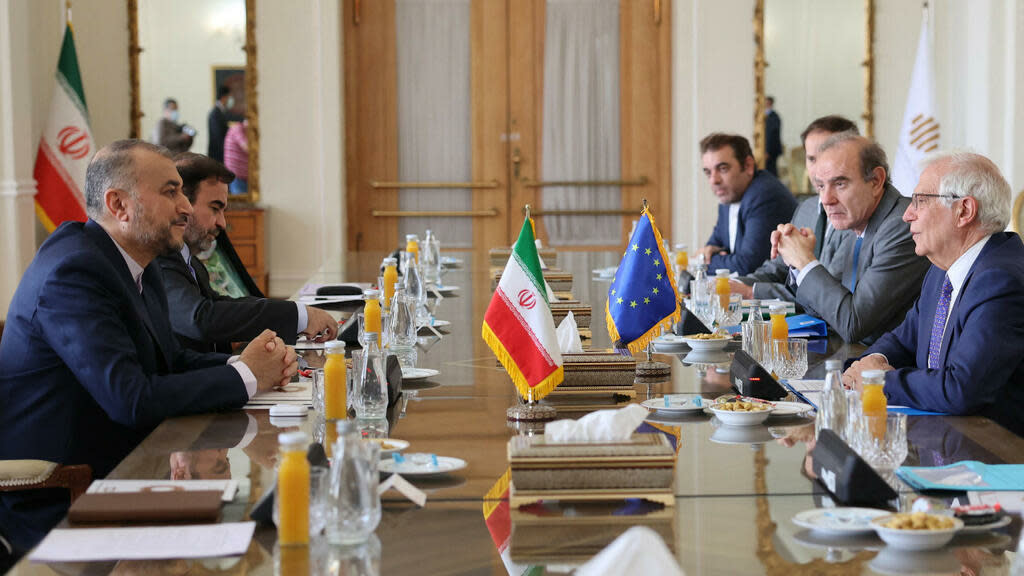Four days after the resumption of negotiations in Vienna aimed at reviving the 2015 Iranian nuclear agreement, the European Union has put a “final” text on the table, but Tehran has not yet given its approval. Diplomats from all parties (Iran, Russia, China, France, United Kingdom and Germany) returned last Thursday to the Austrian capital for yet another attempt to save the Vienna agreement.
Iran said Monday (August 8) that it was examining the “final text” submitted by the European Union (EU) to representatives of the capitals concerned during the negotiations in Vienna intended to save the moribund 2015 agreement on the program Iranian nuclear.
“As soon as we received these ideas, we communicated our initial response and our thoughts” to EU coordinator Enrique Mora, responsible for overseeing the Vienna dialogue, an Iranian foreign affairs official said. official agency Irna.
“But of course the clauses require a global review and we will convey our views and remarks to the coordinator and the other parties,” he added.
The official did not specify what this “initial response” consisted of or what his country’s “remarks” were about the “final text”, while a European official in Vienna affirmed that “this text will not be renegotiated”.
“We worked for four days and today the text is on the table of high representatives,” said the official on condition of anonymity. “The negotiation is over, this is the final text,” he said.
Bringing the 2015 agreement back to life
After months of stalling, diplomats from all sides (Iran, Russia, China, France, UK and Germany) returned to Vienna last week to salvage the 2015 deal.
The pact, known as the JCPOA, aims to guarantee the civilian nature of Iran’s nuclear program, which is accused of seeking to acquire atomic weapons despite its denials. But following the unilateral withdrawal of the United States in 2018 at the instigation of Donald Trump and the reinstatement of American sanctions, Tehran has gradually freed itself from its obligations.
The goal of the talks, in which the Biden administration is indirectly participating, is to get the process back on track.
“Now the ball is in the capitals’ court and we will see what will happen,” added the European official, who said he “definitely hopes” that the text will be accepted and that an agreement will be reached “in a few weeks “.
There remains, however, a sizeable obstacle: Iran is asking the International Atomic Energy Agency (IAEA) to close the question of undeclared sites where traces of enriched uranium had been found.
“It has nothing to do with the JCPOA. At the same time, Iran says it’s fundamental. I hope Iran and the IAEA will have an agreement because it will facilitate a lot of things,” he said. said the manager.
“The agency should completely resolve the issue technically, and move away from irrelevant and non-constructive political issues,” Iranian Foreign Minister Hossein Amir Abdollahian said on Sunday.

